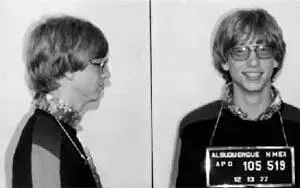As for building something users love, here are some general tips. Start by making something clean and simple that you would want to use yourself. Get a version 1.0 out fast, then continue to improve the software, listening closely to users as you do. The customer is always right, but different customers are right about different things; the least sophisticated users show you what you need to simplify and clarify, and the most sophisticated tell you what features you need to add. The best thing software can be is easy, but the way to do this is to get the defaults right, not to limit users' choices. Don't get complacent if your competitors' software is lame; the standard to compare your software to is what it could be, not what your current competitors happen to have. Use your software yourself, all the time. Viaweb was supposed to be an online store builder, but we used it to make our own site too. Don't listen to marketing people or designers or product managers just because of their job titles. If they have good ideas, use them, but it's up to you to decide; software has to be designed by hackers who understand design, not designers who know a little about software. If you can't design software as well as implement it, don't start a startup.
Now let's talk about competition. What you're afraid of is not presumably groups of hackers like you, but actual companies, with offices and business plans and salesmen and so on, right? Well, they are more afraid of you than you are of them, and they're right. It's a lot easier for a couple of hackers to figure out how to rent office space or hire sales people than it is for a company of any size to get software written. I've been on both sides, and I know. When Viaweb was bought by Yahoo, I suddenly found myself working for a big company, and it was like trying to run through waist-deep water.
I don't mean to disparage Yahoo. They had some good hackers, and the top management were real butt-kickers. For a big company, they were exceptional. But they were still only about a tenth as productive as a small startup. No big company can do much better than that. What's scary about Microsoft is that a company so big can develop software at all. They're like a mountain that can walk.
Figure 5-2. Bill Gates, 1977.

Don't be intimidated. You can do as much that Microsoft can't as they can do that you can't. And no one can stop you. You don't have to ask anyone's permission to develop web-based applications. You don't have to do licensing deals, or get shelf space in retail stores, or grovel to have your application bundled with the OS. You can deliver software right to the browser, and no one can get between you and potential users without preventing them from browsing the Web.
You may not believe it, but I promise you, Microsoft is scared of you. The complacent middle managers may not be, but Bill is, because he was you once, back in 1975, the last time a new way of delivering software appeared.
Chapter 6. How to Make Wealth
If you wanted to get rich, how would you do it? I think your best bet would be to start or join a startup. That's been a reliable way to get rich for hundreds of years. The word "startup" dates from the 1960s, but what happens in one is very similar to the venture-backed trading voyages of the Middle Ages.
Startups usually involve technology, so much so that the phrase "high-tech startup" is almost redundant. A startup is a small company that takes on a hard technical problem.
Lots of people get rich knowing nothing more than that. You don't have to know physics to be a good pitcher. But I think it could give you an edge to understand the underlying principles. Why do startups have to be small? Will a startup inevitably stop being a startup as it grows larger? And why do they so often work on developing new technology? Why are there so many startups selling new drugs or computer software, and none selling corn oil or laundry detergent?
6.1. The Proposition
Economically, you can think of a startup as a way to compress your whole working life into a few years. Instead of working at a low intensity for forty years, you work as hard as you possibly can for four. This pays especially well in technology, where you earn a premium for working fast.
Here is a brief sketch of the economic proposition. If you're a good hacker in your mid twenties, you can get a job paying about $80,000 per year. So on average such a hacker must be able to do at least $80,000 worth of work per year for the company just to break even. You could probably work twice as many hours as a corporate employee, and if you focus you can probably get three times as much done in an hour. You should get another multiple of two, at least, by eliminating the drag of the pointy-haired middle manager who would be your boss in a big company. Then there is one more multiple: how much smarter are you than your job description expects you to be? Suppose another multiple of three. Combine all these multipliers, and I'm claiming you could be 36 times more productive than you're expected to be in a random corporate job. If a fairly good hacker is worth $80,000 a year at a big company, then a smart hacker working very hard without any corporate bullshit to slow him down should be able to do work worth about $3 million a year.
Like all back-of-the-envelope calculations, this one has a lot of wiggle room. I wouldn't try to defend the actual numbers. But I stand by the structure of the calculation. I'm not claiming the multiplier is precisely 36, but it is certainly more than 10, and probably rarely as high as 100.
If $3 million a year seems high, remember that we're talking about the limit case: the case where you not only have zero leisure time but indeed work so hard that you endanger your health.
Startups are not magic. They don't change the laws of wealth creation. They just represent a point at the far end of the curve. There is a conservation law at work here: if you want to make a million dollars, you have to endure a million dollars' worth of pain. For example, one way to make a million dollars would be to work for the Post Office your whole life, and save every penny of your salary. Imagine the stress of working for the Post Office for fifty years. In a startup you compress all this stress into three or four years. You do tend to get a certain bulk discount if you buy the economy-size pain, but you can't evade the fundamental conservation law. If starting a startup were easy, everyone would do it.
6.2. Millions, not Billions
If $3 million a year seems high to some people, it will seem low to others. Three million? How do I get to be a billionaire, like Bill Gates?
So let's get Bill Gates out of the way right now. It's not a good idea to use famous rich people as examples, because the press only write about the very richest, and these tend to be outliers. Bill Gates is a smart, determined, and hardworking man, but you need more than that to make as much money as he has. You also need to be very lucky.
There is a large random factor in the success of any company. So the guys you end up reading about in the papers are the ones who are very smart, totally dedicated, and win the lottery. Certainly Bill is smart and dedicated, but Microsoft also happens to have been the beneficiary of one of the most spectacular blunders in the history of business: the licensing deal for DOS. No doubt Bill did everything he could to steer IBM into making that blunder, and he has done an excellent job of exploiting it, but if there had been one person with a brain on IBM's side, Microsoft's future would have been very different. Microsoft at that stage had little leverage over IBM. They were effectively a component supplier. If IBM had required an exclusive license, as they should have, Microsoft would still have signed the deal. It would still have meant a lot of money for them, and IBM could easily have gotten an operating system elsewhere.
Читать дальше













